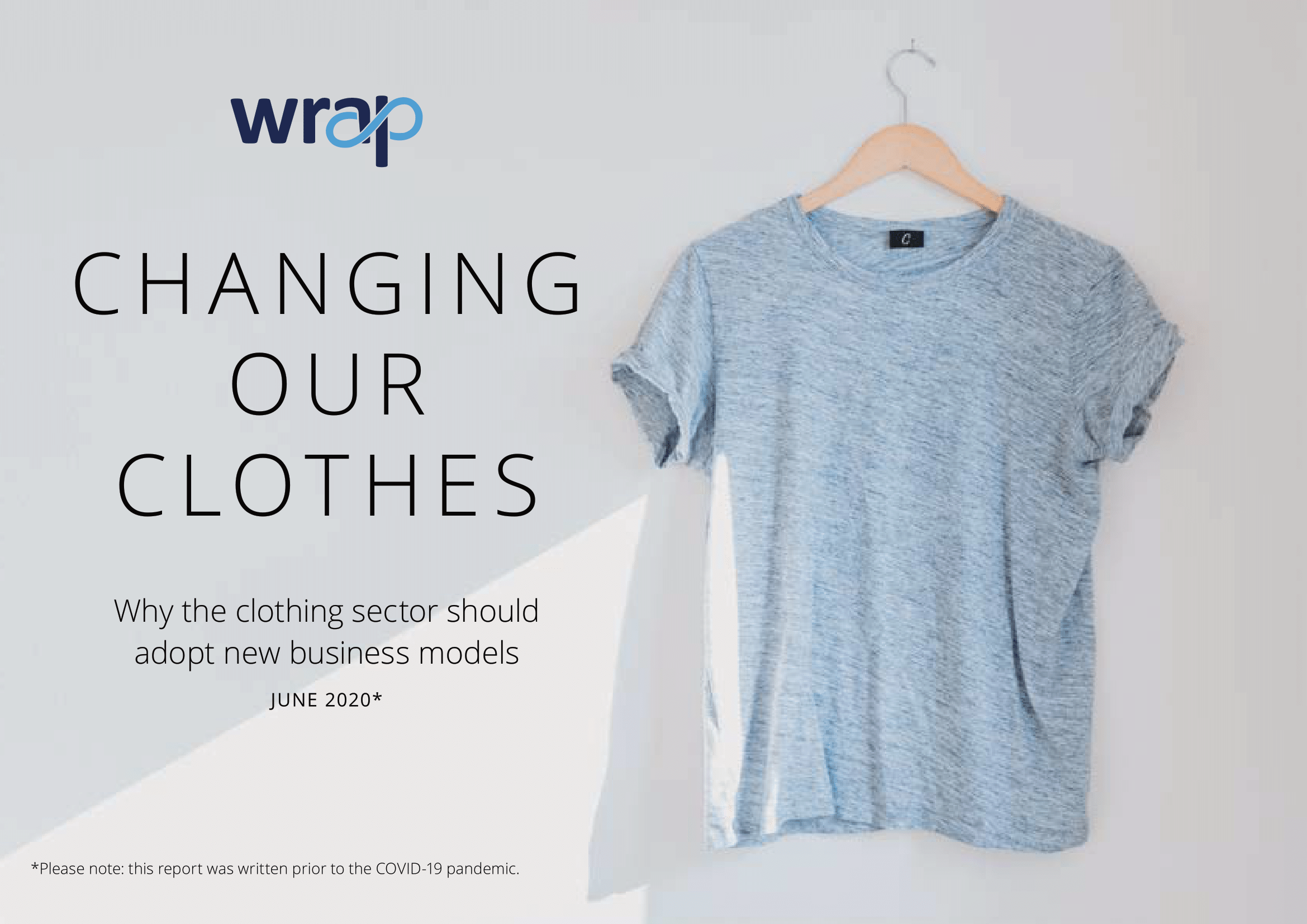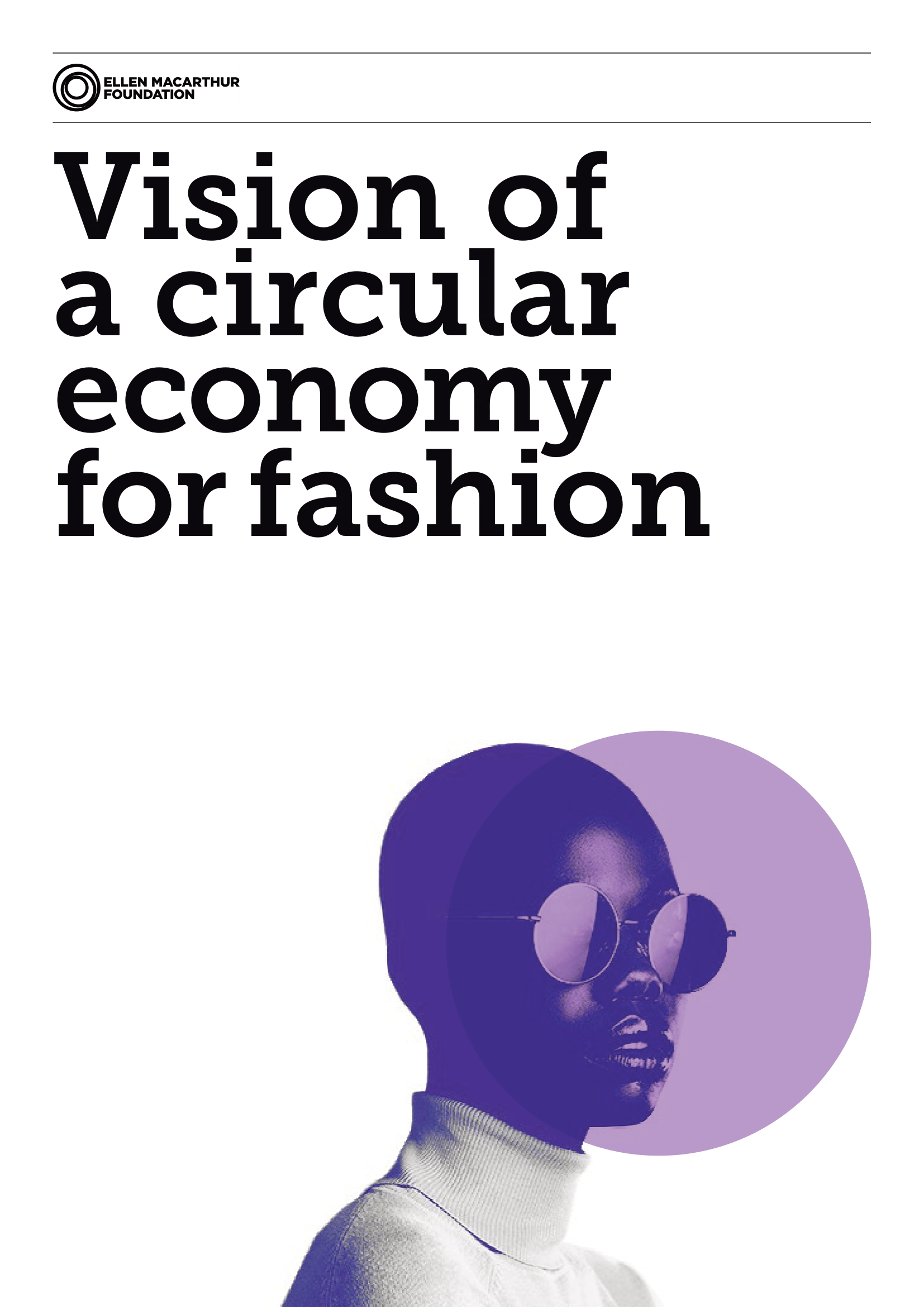Changing our clothes: Why the clothing sector should adopt new business models - June 2020

Incentivize and support product design for circularity (Electronics, CTA 9)
Integrate and Advance Decent Work in the Transition to a Circular Economy (Textiles, CTA 9; Electronics, CTA 10)
The goal of the Circular Economy Training Pilot Projects is to support the education requirements and improve needed skills to support the transition to a circular economy. By embedding circularity to education, the aim is to ensure that the transition is just and the employment possibilities and skill requirements are met.
The objective is to embed circular education into secondary professional education based on needs identified by industries. In early 2021 Sitra published a working paper, which looked at skills and education requirements in plastics, textiles, construction and electronics.
Sitra, Trade Union Pro, the Finnish Association for the Development of Vocational Education and Training AMKE, the Union of Professional Engineers in Finland, the Chemical Industry Federation of Finland, Academic Engineers and Architects in Finland TEK, Technology Finland, Industrial Union, the Finnish Association of Civil Engineers RIL, the Finnish Construction Trade Union and the Confederation of Finnish Construction Industries RT.
Incentivize and Support Product Design for Reuse and Recycling of Plastics (Plastics, CTA 2)
Incentivize and Support Design for Longevity and Recyclability (Textiles, CTA 1)
The Government of Canada, through the Canadian Plastics Innovation Challenge, is financing Singular Solutions project to develop a BioSustainable™ Additive that could help plastic textile waste to biodegrade in long-term composting landfill facilities, creating topsoil-quality humus without generating harmful microplastics. Through this action, Canada is funding the development of this additive that will contribute to circularity requirements for plastic and textile waste.
The Singular Solutions Inc. BioSustainable™ Additive Project is currently at the proof of concept stage, which is scheduled to be complete by the end of 2021. If chosen, the next steps could consist of developing the pilot production for (1) the recycling of synthetic textile and agricultural films into lumber-like structural materials, (2) the converting of non-usable plastic waste into digestible matter and (3) completing the lab scale development to capture CO2, collect organic waste and use digestible matter to produce bioplastics.
The Government of Canada (Funder, PACE Partner)
Singular Solutions Inc., Devonshire Group Inc.
Integrate and Advance Decent Work in the Transition to a Circular Economy (Electronics, CTA 10; Textiles, CTA 9; Plastics, CTA 9)
Investigate the Socio-Economic Impacts of a Circular Economy for Textiles (Textiles, CTA 10)
Investigate Environmental and Socio-Economic Impacts of Renewable Material Inputs for Plastics (Plastics, CTA 10)
The Circular Jobs monitor is an online tool to provide policymakers, economists, and labour organisations with insights into the relationship between the circular economy and the labour market. These insights facilitate the design of evidence-based strategies for promoting the circular economy, required education pathways, and a benchmark of current circular activity against which to monitor future progress.
The objective is to scale through digital tools by extending and increasing the functionality of the Circular Jobs Monitor, including linking data on the trends and evolutions in the labour market over time and monitor practical examples of how circular strategies impact jobs and skills on the Knowledge Hub.
Circle Economy, Goldschmeding Foundation, UNEP and the Ellen MacArthur Foundation (PACE partners)
TU Dortmund, University of Sussex Business School, HIVA at KU Leuven
6. Strategically plan collection, sorting, and recycling operations
7. Increase Efficiency and Quality in Textiles Sorting
8. Make the recycled fibers market competitive
The Government of Canada, through the Canadian Plastics Innovation Challenge, is financing Tengiva Recyclers Network, a digital platform that centralizes the different textile recycling stakeholders in a unique space to facilitate collection, exchanges, distribution and market validation, while optimizing the resources and the capacity of the existing ecosystem. Combined with Tengiva’s technology that facilitates the trading of quality in-stock textiles between manufacturers and apparel brands, this solution could support the recycling facilities both in the procurement of textile waste and the commercialization of their quality recycled byproduct. Through this action, Canada is working to optimize its recycling capacities from 8.8% to 28.7% by better attributing the wastes with the correct recycling and processing facility.
The Recyclers Network project is currently at the stage of proof of concept. The next steps will consist of the development of the said solution, in collaboration with Canadian and international partners, after which, if successful, a pilot project may be conducted.
The Government of Canada and Tengiva
6. Strategically plan collection, sorting, and recycling operations
7. Increase efficiency and quality in textile sorting
8. Make the recycled fibers market competitive
SIPtex wants to serve as the bridge between today’s sorting and high-quality recycling by matching customer needs with fast and high-quality sorting, better conditions are created for increased fiber-to-fiber recycling. It is the world's first large-scale facility of its kind. It sorts textiles by color and fiber composition using near-infrared light, which makes it possible to handle large flows and produce textile fractions that are adapted to different recycling processes.
Siptex – led by IVL Swedish Environmental Research Institute and funded by Vinnova - is a step 3 project within the Challenge-driven innovation program. The first and the second steps were conducted between June 2015 and August 2018. The project is currently undergoing its third, and last, step - the implementation phase – which will end in 2022. In this phase, the objective is to create conditions for a commercial operation of the SIPTex facility and to produce three operation-oriented work packages and four market-oriented work packages:
Operation-oriented: (1) Construction and operation of the SIPTex plant, (2) Sorting optimization and (3) Efficient management of textile waste.
Market-oriented: (1) Markets and business likeness, (2) Quality assurance of recycling products, (3) Environmental assessments of recycling products and (4) Stakeholder cooperation.
IVL, Berendsen, Boer Group, Refashion, Gina Tricot, H&M, Human Bridge, ICA, IKEA, KappAhl, KEMI, Göteborg Kretslopp och Vatten, Malmö Stad, Myrorna, Naturvårdsverket, Re:newcell, Röda Korset (Red Cross), Stadium, Stockholm Vatten och Avfall, Sysav (owner of the facility)
4. Guide and support new business models for environmental, financial, and social triple-win
3. Encourage the market to use less clothing, and for longer
The Global Future Council on Japan brought together a multi-stakeholder expert group to formulate a new vision and path for Japan’s sustainable transition. In its 2020-2021 term, the Council will focus on two working groups: (1) Food and (2) Circular Economy.
Among other themes, the Circular Economy working group is (1) discussing how to reach consumer behavioral change, one of the key pillars of the Global Future Council on Japan, and (2) developing a new business model case study through value chain collaboration, thus connecting key players in the circular economy, such as material suppliers, manufacturers, repairers, and secondary market players.
Its objectives are: (1) policy suggestion, pointing out top priority domestic issues, (2) dissemination to the international community and (3) creating opportunities for accelerating public-private partnership or inter-corporate collaboration.
Center for Global Commons – University of Tokyo and the World Economic Forum
In-country partners
4. Guide and support new business models for environmental, financial, and social triple-win
The Policy Hub unites the textile industry and its stakeholders to speak in one voice and to propose policies that accelerate circular practices in the apparel and footwear industry. It stems from the acknowledgement that to reach full circularity for textiles, we need to link from end to end the five stages in the production process: (1) design, (2) materials (3) production (4) consumption, and (5) post-consumption.
The Policy Hub is working towards the following goals:
Ensuring that climate neutrality is recognized as an objective of the textile strategy and CEAP.
Promoting a holistic policy approach in the textiles value chain, ranging from design, materials, production, consumption to post-consumptions.
Establishing clear EU-guidelines for consumer facing transparency.
In June 2021, the Policy Hub has published a Position Paper on Accelerating Transparency for Apparel & Footwear.
Laudes Foundation, Sustainable Apparel Coalition, Global Fashion Agenda and Federation of European Sporting Goods Industry
4. Guide and support new business models for environmental, financial, and social triple-win
10. Investigate the socio-economic impacts for a circular economy for textiles
Innovative Business Practices and Economic Models in the Textile Value Chain (InTex) promotes co-innovation and product environment footprints in SMEs in Africa. On the global level, InTex focuses on LCA and impacts assessment such as scenario modelling on sustainable economic models in the textile value chain.
InTex is committed to the following objectives:
Increase among SMEs and governments the knowledge
Train textiles stakeholders
Accompany textiles businesses to transform their approach and business models
Increase the access to environmental and lifecycle data
Provide evidence of the environmental and socio-economic impacts
The InTex project has been officially launched on 15 June 2021 and it will end in August 2023. The objective for the upcoming months is to develop a Roadmap for a Sustainable and Circular Textile Value Chain.
UNEP, Moi University in Kenya, the Centre for African Resource Efficiency and Sustainability in South Africa, the National Cleaner Production Centre of South Africa and the International Centre for Environmental Technologies of Tunis

